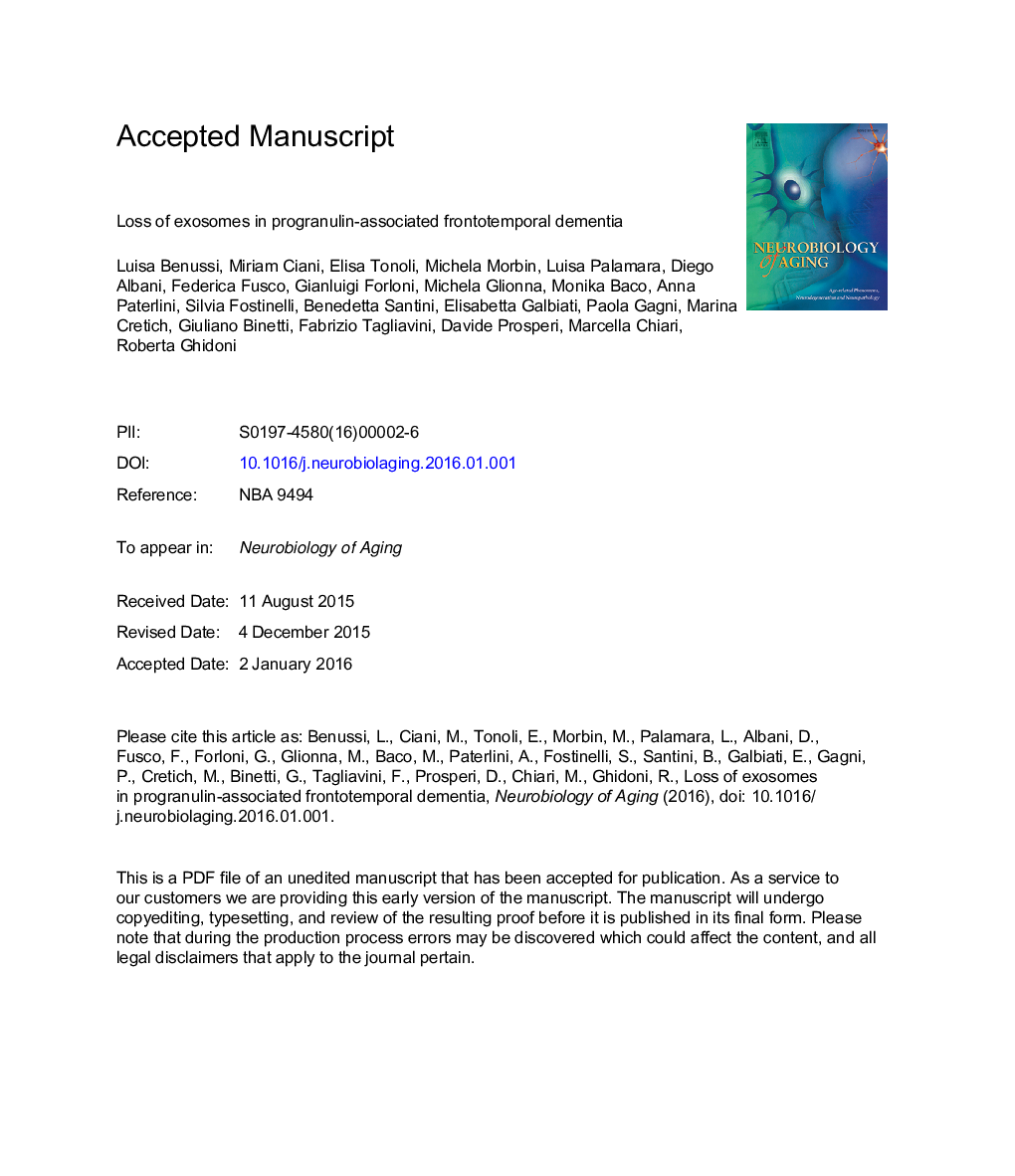| Article ID | Journal | Published Year | Pages | File Type |
|---|---|---|---|---|
| 6803494 | Neurobiology of Aging | 2016 | 37 Pages |
Abstract
Many cells of the nervous system have been shown to release exosomes, a subclass of secreted vesicles of endosomal origin capable of transferring biomolecules among cells: this transfer modality represents a novel physiological form of intercellular communication between neural cells. Herein, we demonstrated that progranulin (PGRN), a protein targeted to the classical secretory pathway, is also secreted in association with exosomes by human primary fibroblasts. Moreover, we demonstrated that null mutations in the progranulin gene (GRN), a major cause of frontotemporal dementia, strongly reduce the number of released exosomes and alter their composition. In vitro GRN silencing in SHSY-5Y cells confirmed a role of PGRN in the control of exosome release. It is believed that depletion of PGRN in the brain might cause neurodegeneration in GRN-associated frontotemporal dementia. We demonstrated that, along with shortage of the circulating PGRN, GRN null mutations alter intercellular communication. Thus, a better understanding of the role played by exosomes in GRN-associated neurodegeneration is crucial for the development of novel therapies for these diseases.
Related Topics
Life Sciences
Biochemistry, Genetics and Molecular Biology
Ageing
Authors
Luisa Benussi, Miriam Ciani, Elisa Tonoli, Michela Morbin, Luisa Palamara, Diego Albani, Federica Fusco, Gianluigi Forloni, Michela Glionna, Monika Baco, Anna Paterlini, Silvia Fostinelli, Benedetta Santini, Elisabetta Galbiati, Paola Gagni,
